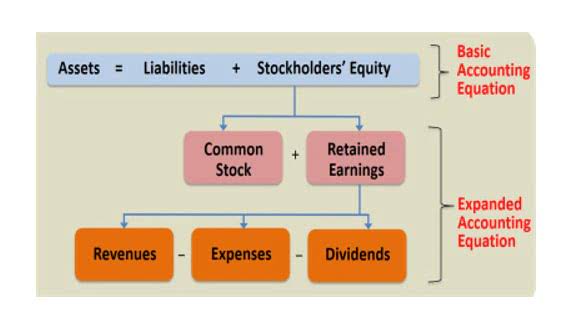
Each of these areas requires unique methodologies and tools, the adept handling of which is a testament to a consultant’s capabilities. This fundamental training imparts an understanding of the basic principles and techniques of accounting. Our mission is to empower readers with the most factual and reliable financial information possible to help them make informed decisions for their individual needs. Our goal is to deliver the most understandable and comprehensive explanations of financial topics using simple writing complemented by helpful graphics and animation videos. We follow strict ethical journalism practices, which includes presenting unbiased information and citing reliable, attributed resources.
- Challenges of being an accountant consultant include intense work pressure, long working hours during busy periods, and the need for constant skill upgradation to keep up with changes in regulations and technology.
- Accounting consultants must have a strong educational background in accounting or a related field.
- For example, a degree in finance can help you get a job as a financial or business consultant in various fields.
- An organization that hires an accounting consultant avails itself of a reservoir of expertise and specialized knowledge.
- When executed well, this approach can lead to higher margins, increased client satisfaction, and stronger long-term relationships.
Welcome to the Kaplan Community Career Center
Before an accounting consultant can provide effective advice or services, they must first understand the client’s business operations, financial needs, and long-term goals. The role of an accounting consultant may vary depending on the client’s needs. Still, it typically involves analyzing financial statements, developing budgets, providing what is consulting in accounting tax advice, and assisting with financial decision-making. Introducing advisory services to your clients requires a strategic and thoughtful approach.
- Spending time in various accounting roles—be it in a small firm, a large corporation, or independent practice—provides the valuable practical experience needed to understand the intricacies of the job.
- To learn if this is a great next step for you, learn more about accounting consultants, what they do, how much they earn, and how to become one.
- An accounting consultant usually works as an independent contractor by taking on temporary assignments with different companies.
- This team of experts helps Finance Strategists maintain the highest level of accuracy and professionalism possible.
- These individuals hold an in-depth understanding of accounting principles and how to apply them in various business scenarios.
- An accounting consultant offers expert advice on financial management, ensuring a business’s financial operations are efficient, accurate, and compliant with legal norms.
Convert clients from compliance to advisory
You will also find that Big Four accounting firms offer accounting consulting services. The scope of what accounting advisory firms provide sometimes changes as new issues arise. For example, during the course of a restatement process, as the problems that led to the need to restate financial statements come to light, so do the need for process improvements and tightening of internal controls. You want the kind of accounting consulting firm, equipped with the right mix of talent, that can peel back the onion to identify such issues and come up with solutions—so that the risk of a future restatement is severely minimized. New processes and policies, stronger SOX controls, training of staff, and other changes may be in order. Another way these consultants fill a critical gap is when the company anticipates needing a financial audit.
Advising on Financial Strategy
Despite their challenges, such as navigating complex compliance landscapes and the constant need to stay updated with technological advances, their benefits are immense. This activity includes adherence to tax Bookkeeping for Chiropractors laws, financial reporting standards, and other relevant legislation. Their customized approach ensures that every aspect of the organization’s financial functions operates efficiently. Their work in this area might involve detailed evaluations of financial statements, identifying risks, detecting inefficiencies, and assessing overall financial performance. They are well-equipped to optimize the efficiency and accuracy of an enterprise’s financial functions while ensuring they adhere to legal norms.

Here is an overview of what an accounting consultant does for organisations. Becoming an accountant consultant requires a combination of formal education, professional certifications, and practical experience. While formal education and certifications provide the theoretical foundation and professional legitimacy, practical skills, and experience make an accountant consultant genuinely effective. In business and finance, an accountant consultant is a pillar of strategic guidance and financial wisdom. These individuals hold an in-depth understanding of accounting principles and how to apply them in various business scenarios. An accounting consultant ensures that businesses ledger account adhere to financial regulations, conducting regular audits and helping prepare for external audit evaluations.

Attention to Detail and Accuracy
- An ongoing survey by Indeed shows that the average salary for accounting consultants in the United States is $78,960 per year (as of April 2020).
- Traditionally, the nature of accountancy means that you collect historical information and data and report on it.
- Even so, a consultant might still have to take short business trips to client sites in different cities.
- In a fiercely competitive landscape, an additional degree can add significant weight to one’s credentials.
- Practice answering common consulting questions before you go into an interview.
- This arrangement can be a cost-effective solution for businesses that require expert financial counsel on a project-by-project basis.
The pros of being an accountant consultant include high demand in the market, the potential for a high income, and challenging and diverse work. Specific periods, like the end of the fiscal year or tax season, can require extended working hours to meet clients’ needs. Business advisory skills are another pivotal aspect of an accountant consultant’s portfolio. They are the leaders with information and insights facilitating intelligent decisions about the organization’s financial future. Accounting consultants must conduct exhaustive financial analyses in an era where fiscal responsibility is paramount for all organizations. These professionals often operate as financial problem-solvers, addressing any discrepancies and improving the business’s financial health.

Or, if you work for a large organization, you most likely use different software than smaller companies do. The niche you want to enter may require you to learn a particular type of software (QuickBooks, Xero, Intacct) or brush up on other skills such as workflow management. Before launching your consulting career, determine what type of work you think you may want to do. Evaluate both your technical skills (such as regulatory knowledge, industry knowledge, proficiency with different types of software, and writing capabilities) and soft skills (training and/or managing staff, networking, presenting). When working with a staffing or consulting services firm, you register and are interviewed and onboarded, and the firm will match you with potential employment opportunities. The firm will also take a percentage of your pay in exchange for this and other services.


 Ei̇dman Və Kazino Mərcləri >> Depozit Bonusu $1000 – 317
Ei̇dman Və Kazino Mərcləri >> Depozit Bonusu $1000 – 317